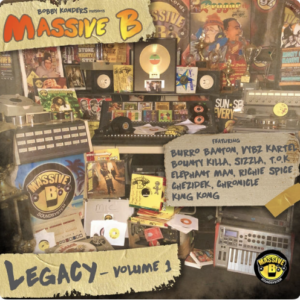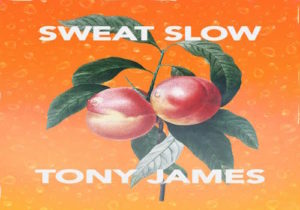Tech Talk News: Steve Jobs Does Playboy????
Well not exactly but sort of,  in 1987 Playboy sat down with Steve Jobs to discuss money and technology with then 29 year old Steve.  Playboy recently launched their iplayboy website with archives worth of interviews, they decided to post a long lost interview with Steve Jobs.
@Yungjohnnybravo @TatWZA
To explore life and technology with the young (Jobs will turn 30 next month) father of the computer revolution, Playboy sent freelance journalist David Sheff to the heart of Silicon Vally. His report:
…”The ‘Interview’ was all but complete when I met Jobs at a celebrity-filled birthday party for a youngster in New York City. As the evening progressed, I wandered around to discover that Jobs had gone off with the nine-year-old birthday boy to give him the gift he’d brought from California: a Macintosh computer. As I watched, he showed the boy how to sketch with the machine’s graphics program. Two other party guests wandered into the room and looked over Jobs’s shoulder. ‘Hmmm,’ said the first, Andy Warhol. ‘What is this? Look at this, Keith. This is incredible!’ The second guest, Keith Haring, the graffiti artist whose work now commands huge prices, went over. Warhol and Haring asked to take a turn at the Mac, and as I walked away, Warhol had just sat down to manipulate the mouse. ‘My God!’ he was saying, ‘I drew a circle!’
‘But more revealing was the scene after the party. Well after the other guests had gone, Jobs stayed to tutor the boy on the fine points of using the Mac. Later, I asked him why he had seemed happier with the boy than with the two famous artists. His answer seemed unrehearsed to me: ‘Older people sit down and ask, “What is it?” but the boy asks, “What can I do with it?”‘”
Playboy: We survived 1984 and computers did not take over the world, though some people might find that hard to believe. If there’s any one individual who can be either blamed or praised for the proliferation of computers, you, the 29-year-old father of the computer revolution, are the prime contender. It has also made you wealthy beyond dreams––your stock was worth almost a half billion dollars at one point, wasn’t it?
Steve Jobs: I actually lost $250,000,000 in one year when the stock went down. [Laughs]
PB: You can laugh about it?
SJ: I’m not going to let it ruin my life. Isn’t it kind of funny? You know, my main reaction to this money thing is that it’s humorous, all the attention to it, because it’s hardly the most insightful or valuable thing that’s happened to me in the past ten years. But it makes me feel old, sometimes, when I speak at a campus and I find that what students are most in awe of is the fact that I’m a millionaire.
When I went to school, it was right after the Sixties and before this general wave of practical purposefulness had set in. Now students aren’t even thinking in idealistic terms, or at least nowhere near as much. They certainly are not letting and of the philosophical issues of the day take up too much of their time as they study their business majors. The idealistic wind of the Sixties was still at our backs, though, and most of the people I know who are my age have that engrained in them forever.
PB: It’s interesting that the computer field has made millionaires of––
SJ: Young maniacs, I know.
PB: We were going to say guys like you and Steve Wozniak, working out of a garage only ten years ago. Just what is this revolution you two seem to have started?
SJ: We’re living in the wake of the petrochemical revolution of 100 years ago. The petrochemical revolution gave us free energy––free mechanical energy, in this case. It changed the texture of society in most ways. This revolution, the information revolution, is a revolution of free energy as well, but of another kind: free intellectual energy. It’s very crude today, yet our macintosh computer takes less power than a 100-watt light bulb to run and it can save you hours a day. What will it be able to do ten or 20 years from now, or 50 years from now? This revolution will dwarf the petrochemical revolution. We’re on the forefront.
PB: Maybe we should pause and get your definition of what a computer is. How do they work?
SJ: Computers are actually pretty simple. We’re sitting here on a bench in this café. Let’s assume that you understood only the most rudimentary of directions and you asked how to find the rest room. I would have to describe it to you in very specific and precise instruction. I might say, “Scoot sideways two meters off the bench. Stand erect. Lift left foot. Bend left knee until it is horizontal. Extend left foot and shift weight 300 centimeters forward…” and on and on. If you could interpret all those instructions 100 times faster than any other person in this café, you would appear to be a magician: You could run over and grab a milk shake and bring it back and set it on the table and snap your fingers, and I’d think you made the milk shake appear, because it was so fast relative to my perception. THat’s exactly what a computer does. It takes these very simple-minded instructions––”Go fetch a number, add it to this number, put the result there, perceive if it’s greater than this other number”––but executes them at a rate of , let’s say, 1,000,000 per second. At 1,000,000 per second, the results appear to be magic.
That’s a simple explanation, and the point is that people really don’t need to understand how computers work. Most people have no concept of how an automatic transmission works, yet they know how to drive a car. You don’t have to study physics to understand the laws of motion to drive a car. You don’t have to understand any of this stuff to use Macintosh––but you asked [laughs]
PB: Obviously, you believe that computers are going to change our personal lives, but how would you persuade a skeptic? A holdout?
SJ: A computer is the most incredible tool we’ve ever seen. It can be a writing too, a communications center, a supercalculator, a planner, a filer and an artistic instrument all in one, just by being given new instructions, or software, to work from. There are no other tools that have the power and versatility of a computer. We have no idea how far it’s going to go. Right now, computers make our lives easier. They do work for us in fractions of a second that would take us hours. They increase the quality of life, some of that by simply automating drudgery and some of that by broadening our possibilities. As things progress, they’ll be doing more and more for us.
PB: How about some concrete reasons to buy a computer today? An executive in your industry recently said, “We’ve given people computers, but we haven’t shown them what to do with them. I can balance my checkbook faster by hand than on my computer.” Why should a person buy a computer?
SJ: There are different answers for different people. In business, that question is easy to answer: You really can prepare documents much faster and at a higher quality level, and you can do many things to increase office productivity. A computer frees people from much of the menial work. Besides that, you are giving them a tool that encourages them to be creative. Remember, computers are tools. Tools help us do our work better.
In education, computers are the first thing to come along since books that will sit there and interact with you endlessly without judgment. Socratic education isn’t available anymore, and computers have the potential to be a real breakthrough in the educational process when used in conjunction with enlightened teachers. We’re in most schools already.
PB: Those are arguments for computers in business and in schools, but what about the home?
So far, that’s more of a conceptual market than a real market. The primary reasons to buy a computer for your home now are that you want to do some business work at home or you want to run reductional software for yourself or your children. If you can’t justify buying a computer for one of those two reasons, the only other possible reason is that you just want to be computer literate. You know there’s something going on, you don’t exactly know what it is, so you want to learn. This will change: Computers will be essential in most homes.
PB: What will change?
SJ: The most compelling reason for most people to buy a competitor for the home will be to link it to a nationwide communications network. We’re just in the beginning stages of what will be a truly remarkable breakthrough for most people––as remarkable as the telephone.
PB: Specifically what kind of breakthrough are you talking about?
SJ: I can only begin to speculate. We see that a lot in our industry: You don’t know exactly what’s going to result, but you know it’s something very big and very good.
PB: Then for now, aren’t you asking home-computer buyers to invest $3000 in what is essentially an act of faith?
 SJ: In the future, it won’t be an act of faith. The hard part of what we’re up against now is that people ask you about specifics and you can’t tell them. A hundred years ago, if somebody had asked Alexander Graham Bell, “What are you cooing to be able to do with a telephone?” he wouldn’t have been able to tell him the ways the telephone would affect the world. He didn’t know that people would use the telephone to call up and find out what movies were playing that night or to order some groceries or call a relative on the other side of the globe. But remember that the first public telegraph was inaugurated in 1844. It was an amazing breakthrough in communications. You could actually send messages from New York to San Francisco in an afternoon. People talked about putting a telegraph on every desk in America to improve productivity. But it wouldn’t have worked. It required that people learn from this whole sequence of strange incantations, Morse code, dots and dashes, to use the telegraph. It took about 40 hours to learn. The majority of people would never learn how to use it. So fortunately, in the 1870s, Bell filed the patents for the telephone. It performed basically the same function as the telegraph but people already knew how to use it. Also, the neatest thing about it was that besides allowing you to communicate with just words, it allowed you to sing.
SJ: In the future, it won’t be an act of faith. The hard part of what we’re up against now is that people ask you about specifics and you can’t tell them. A hundred years ago, if somebody had asked Alexander Graham Bell, “What are you cooing to be able to do with a telephone?” he wouldn’t have been able to tell him the ways the telephone would affect the world. He didn’t know that people would use the telephone to call up and find out what movies were playing that night or to order some groceries or call a relative on the other side of the globe. But remember that the first public telegraph was inaugurated in 1844. It was an amazing breakthrough in communications. You could actually send messages from New York to San Francisco in an afternoon. People talked about putting a telegraph on every desk in America to improve productivity. But it wouldn’t have worked. It required that people learn from this whole sequence of strange incantations, Morse code, dots and dashes, to use the telegraph. It took about 40 hours to learn. The majority of people would never learn how to use it. So fortunately, in the 1870s, Bell filed the patents for the telephone. It performed basically the same function as the telegraph but people already knew how to use it. Also, the neatest thing about it was that besides allowing you to communicate with just words, it allowed you to sing.
PB: Meaning what?
SJ: It allowed you to intone your words with meaning beyond the simple linguistics. And we’re in the same situation today. Some people are saying that we ought to put an IBM PC on every desk in America to improve productivity. It won’t work. The special incantations you have to learn this time are the “slash q-zs” and things like that. The manual for WordStar, the most popular word-processing program, is 400 pages thick. To write a novel, you have to read a novel––one that reads like a mystery to most people. They’re not going to learn slash q-z any more than they’re going to learn Morse code. That is what Macintosh is all about. It’s the first “telephone” of our industry. And, besides that, the neatest thing about it, to me, is that the Macintosh lets you sing the way the telephone did. you don’t simply communicate words, you have special print styles and the ability to draw and add pictures to express yourself.
PB: Is that really significant or is it simply a novelty? The Macintosh has been called “the world’s most expensive Etch A Sketch” by at least one critic.
SJ: It’s as significant as the difference between the telephone and the telegraph. Imagine what you could have done if you had this sophisticated an Etch A Sketch when you were growing up. But that’s only a small part of it. Not only can it help you increase your productivity and your creativity enormously, but it also allows us to communicate more efficiently by using pictures and graphs as well as words and numbers.
PB: Most computers use key strokes to enter instructions, but Macintosh replaces many of them with something called a mouse––a little box that is rolled around on your desk and guides a pointer on your computer screen. It’s a big change for people used to keyboards. Why the mouse?
SJ: If I want to tell you there’s a spot on your shirt, I’m not going to do it linguistically: “There’s a spot on your shirt 14 centimeters down from the collar and three centimeters to the left of your button.” If you have a spot––”There!” [He points]––I’ll point to it. Pointing is a metaphor we all know. We’ve done a lot of studies and tests on that, and it’s much faster to do all kinds of functions, such as cutting and pasting, with a mouse, so it’s not only easier to use but more efficient.
PB: How long did it take to develop Macintosh?
SJ: It was more than two years on the computer itself. We had been working on the technology behind it for years before that. I don’t think I’ve ever worked so hard on something, but working on macintosh was the neatest experience of my life. Almost everyone who worked on it will say that. None of us wanted to release it at the end. It was as though we knew that once it was out of our hands, it wouldn’t be ours anymore. When we finally presented it at the shareholders’ meeting, everyone in the auditorium gave it a five-minute ovation. What was incredible to me was that I could see the Mac team in the first few rows. It was as though none of us could believe we’d actually finished it. Everyone started crying.
PB: We were warned about you: Before this Interview beacon, someone said we were “about to be snowed by the best.”
SJ: [Smiling] We’re just enthusiastic about what we do.
PB: But considering that enthusiasm, the multimillion-dollar ad campaigns and your own ability to get press coverage, how does the consumer know what’s behind the hype?
SJ: Ad campaigns are necessary for competition; IBM’s ads are everywhere. But good PR educates people; that’s all it is. You can’t con people in this business. The products speak for themselves.
PB: Aside from some of the recurrent criticisms––that the mouse is inefficient, that the Macintosh Screen is only black and white––the most serious charge is that Apple overprices its products. Do you care to answer any or all?
SJ: We’ve done studies that prove that the mouse is faster than traditional ways of moving through data or applications. Someday we may be able to build a color screen for a reasonable prices. As to overpricing, the start-up of a new product makes it more expensive than it will be later. The more we can produce, the lower the price will get––-
PB: That’s what critics charge you with: hooking the enthusiasts with premium prices, then turning around and lowering your prices to catch the rest of the market.
SJ: That’s simply untrue. As soon as we can lower prices, we do. It’s true that our computers are less expensive today than they were a few years ago, or even last year. But that’s also true of the IBM PC. Our goal is to get computers out to tens of millions of people, and the cheaper we can make them, the easier it’s going to be to do that. I’d love if Macintosh cost $1000.
PB: How about people who bought Lisa and Apple III, the two computers you released prior to Macintosh? You’ve left them with incompatible, out-of-date products.
SJ: If you want to try that one, add the people who bought the IBM PCs or the PCjrs to that list too. As far as Lisa is concerned, since some of its technology was used in the macintosh, it can now run Macintosh software and is being seen as a big brother to Macintosh; though it was unsuccessful at first, our sales of Lisa are going through the roof. We’re also still selling more than 2000 Apple IIs a month––more than half to repeat buyers. The overall point is that new technology will not necessarily replace old technology, but will date it. By definition. Eventually, it will replace it. But ti’s like people who had black-and-white TVs when color came out. They eventually decided whether or not the new technology was worth the investment.
PB: At the rate things are changing, won’t Mac itself be out of date within a few years?
SJ: Before Macintosh, there were those two standards: Apple II and IPM PC. Those two standards are like rivers carved in the rock bed of a canyon. It’s taken years to carve them––seven years to carve the Apple II and four years to carve the IBM. What we have done with Macintosh is that in less than a year, through the momentum of the revolutionary aspects of the product and through every ounce of marketing that we have as a company, we have been able to blast a third channel through that rock and make a third river, a third standard. In my opinion, there are only two companies that can do that today, Apple and IBM. Maybe that’s too bad, but to do it right now is just a monumental effort, and I don’t think that Apple or IBM will do that in the next three or four years. Toward the end of the Eighties, we may be seeing some new things.
PB: And in the meantime?
SJ: The developments will be in making the products more portable, networking them, getting out laser printers, getting out shared data bases, getting out more communications ability, maybe the merging of the telephone and the personal computer.
…Blah blah business numbers blah…
PB: You wanted to run the Lisa division. Markkula and Scott, who were in effect, your bosses, even though you had a hand in hiring them, didn’t feel you were capable, right?
SJ: After setting up the framework for the concepts and finding the key people and sort of setting the technical directions, Scotty decided I didn’t have the experience to run the thing. It hurt a lot. There’s no getting around it.
PB: Did you feel you were losing Apple?
SJ: There was a bit of that, I guess, but the thing that was harder for me was that they hired a lot of people in the Lisa group who didn’t share the vision we originally had. There was a big conflict in the Lisa group between the people who wanted, in essence, to build something like Macintosh and the other people hired from Hewelett-Packard and other companies who brought with them a perspective of larger machines, corporate sales. I just decided I was going to go off and do that myself with a small group, sort of go back to the garage, to design the true Macintosh. They didn’t take us very seriously. I think Scotty was just sort of humoring me.
PB: But this was the company that you founded. Weren’t you resentful?
SJ: You can never resent your kid.
PB: Even when your kid tells you to fuck off?
SJ: I wouldn’t feel resentment. I’d feel great sorrow about it and I’d be frustrated, which I was. But I got the best people who were at APple, because I thought that if we didn’t do that, we’d be in real trouble. Of course, it was those people who came up with Macintosh. [Shrugs] Look at Mac.
PB: That verdict is far from in. In fact, you ushered in the Mac with a lot of the same fanfare that preceded the Lisa, and the Lisa failed initially.
SJ: it’s true: We expressed very high hopes for Lisa and we were wrong. The hardest thing for us was that we knew Macintosh was coming, and Macintosh seemed to overcome every possible objection to Lisa. As a company, we would be getting back to our roots––selling computers to people, not corporations. We went off and built the most insanely great computer in the world.
PB: Does it take insane people to make insanely great things?
SJ: Actually, making an insanely great product has a lot to do with the prices of making the product, how you learn things and adopt new ideas and throw out the old ideas. But yea, the people who made Mac are sort of on the edge.
PB: What’s the difference between the people who have insanely great ideas and the people who pull of those insanely great ideas?
SJ: Let me compare it with IBM. How come the Mac group produced Mac and the people at IBM produced the PCjr? We think the Mac will sell zillions, but we didn’t build the Mac for anybody else. We built it for ourselves. We were the group of people who were going to judge whether it was great or not. We weren’t going to go out and do market research. We just wanted to build the best thing we could build. When you’re a carpenter making a beautiful chest of drawers, you’re not going to use a piece of plywood on the back, even though it faces the wall and nobody will ever see it. You’ll know it’s there, so you’re going to use a beautiful piece of wood on the back. For you to sleep well at night, the aesthetic, the quality, has to be carried all the way through.
PB: Are you saying that the people who made PCjr don’t have that kind of pride in the product?
SJ: If they did, they wouldn’t have made the PCjr. It seems clear to me that they were designing that on the basis of market research for a specific market segment, for a specific demographic type of customer, and they hoped that if they built this, lots of people would buy them and they’d make lots of money. Those are different motivations. The people in the Mac group wanted to build the greatest computer that has ever been seen.
THE BLOG
HOT 97
LINKS
MUSIC
Bobby Konders Presents: Massive B Legacy, Vol. 1
Release Date: November 19th, 2018 Bobby Konders Presents: Massive B Legacy – Volume 1 is now available and includes ten features on ten tracks. Burro Banton, Vybez Kartel, Bounty Killa, Sizzla, T.O.K., Elephantman, Richie Spice, Chezidek, Chronicle, and King Kong. You can listen on Apple Music, Spotify, and Tidal.
#MusicStillMatters New Music: A Boogie – Nice For What
A boogie gave fans a snippet of this one via his instagram. Finally after all the request to drop the full version from fans – here it is. Check A Boogie’s version of “Nice For What.” Listen below.
#MusicStillMatters New Music: Dave East – Imagine
Dave East is set to release the 2nd installment of his “Karma” series, next week on July 27. Check out this new one off the tape called “Imagine.” Listen below.
#MusicStillMatters New Music: 070 Shake – Accusations
The G.O.O.D. Music rookie 070 Shake releases a new one called “Accusations.” Listen below.
(Video) Tony James – Sweat Slow
Toronto’s very own Tony James has released his major label debut single and visual for “Sweat Slow.” Tony says this one “Is about the one that got away, so we wanted to show the beautiful, happy women representing the ex-girlfriends of the men who took them for granted.” Look out for more from Tony this…
#MusicStillMatters New Music: Childish Gambino – Summertime Magic / Feels Like Summer
Childish Gambino aka Donald Glover follows up his video/song “This Is America” with not only one, but two records for the summer. The “Atlanta” creator tweeted “summer pack,” with a link to his songs, “Summertime Magic” and “Feels Like Summer.”
#MusicStillMatters Stream: Meek Mill – Legends Of The Summer
Meek Mill decided to treat his fans to new music when he dropped a new EP called “Legends of the Summer.” the 4-track tape features Swizz Beatz, Jeremih and PNB Rock. Stream below.
#MusicStillMatters Stream: Future – Beast Mode 2
Future links up with Zaytoven for the follow up to 2015’s “Beast Mode” titled “Beast Mode 2” which includes 9 tracks with a feature from Young Scooter. Listen below.
#MusicStillMatters New Music: T-Pain – Boo’d Up (Remix)
First it was Nicki Minaj and Quavo who put their touch on the track to mixed reviews. Then Fabolous laid his verse on the hit single. Now, T-Pain decided to give his take on the track. Listen below.
TECH TALK
We Know What YG’s Next Purchase Will Be: This ALL RED Special Edition iPhone!
An all red iPhone is on the way – I’m sure much to the delight of the Bloods. LOL! A special edition red version of the iPhone 7 and 7 Plus have been introduced, in celebration of the 10-year anniversary of Apple’s partnership with HIV/AIDS organization, (Red).
(Video) Apple Unveils New Spaceship Campus Called “Apple Park”
One of Steve Jobs projects he left behind before his untimely death from pancreatic cancer, was the Apple spaceship campus. Take a look.
(Video) Lil Wayne Featured In EA’s ‘Need For Speed: No Limits’ Game
While we still have no Carter 5 in sight, we can at least get SOMETHING from Lil Wayne in the form of EA’s new mobile game, Need For Speed: No Limits. Players can drive as Weezy in the game, and both his voice and likeness are there for fans to enjoy. Tune is also working…
Sprint Purchases 33% Stake In Jay-Z’s Tidal
Power moves on power moves on top of power moves. Hov just struck a big deal for Tidal and the artists who have stake in the company as well, through Sprint.
(Video) Travis Scott Previews New Heat On Snapchat
Looks like Travis Scott is cooking something up…Astroworld this year?
Azealia Banks Has Been Banned From Facebook
AzealiaBanksVEVO Well, that took longer than expected.
(Video + Photo) Ariana Grande Got Her Own Character In “Final Fantasy: Brave Exvius” Game
Soon you’ll be able to play as Ariana in Final Fantasy and she broke the news to her fans yesterday.
SoundCloud Makes A Major Update That MANY People Will Be Happy About!
When SoundCloud first came out, it quickly became a hub for DJs, uploading their mixes and gaining a decent following because of it. However, as labels became more hip to the new site, they began issuing copyright infringements left to right, and DJs began leaving the streaming website in droves – especially because their accounts…
MARISA EXPLAINS IT ALL
Marisa Mendez x Jamal x Tunisia – Marisa Explains It All [Episode 16: “Holiday Hangover”]
We’ve made it to episode 16 of my podcast, Marisa Explains It All, and I finally decided to share it with you guys here. LOL! On this episode, we pre-gamed before the Ebro In The Morning holiday party…and uh, yeah. Drunk talk and feelings were at an all time high. Our music picks are as…
Behind The Lyrics: Lil Wayne Admits To Botched Suicide Attempt As A Child On “London Roads”
Lil Wayne has long recounted a story of “accidentally” shooting himself when he was 12, playing with a 9 mm handgun. Thankfully, an off-duty cop was around to help young Tune, and he survived to become the rap star he is today. Apparently, that wasn’t the whole story, though! On “London Roads”, a song from…
(Video) Machine Gun Kelly Finally Opens Up About Amber Rose
Machine Gun Kelly is one of my favorite artists and has been a good friend of mine for years now, so it was double the blessing to make my Hot 97 interview debut with him on Ebro In The Morning today! The Bad Boy rapper stopped by to discuss his new single and its powerful…
Behind The Lyrics: Wiz Khalifa Comes For Amber’s Neck On “For Everybody”
Last night, Juicy J dropped his Wiz Khalifa-assisted single “For Everybody,” and boy did Wiz have some choice words for his ex Amber Rose on the track! And to drive the point home, they included a photo of themselves at his wedding to Amber as the song’s artwork.
(Video) Honey Cocaine Plays A Hilarious Game Of Taboo
Toronto-bred raptress Honey Cocaine made her rounds at Hot 97 a few weeks back, promoting her latest mixtape Like A Drug, and its 2 singles, “Gwola” featuring Kid Ink and Maino, and “None Of My Business” with Kirko Bangz and Constantine. Following her dope interview with Jen From BK for Jen’s “Ladies First” segment, I…
Interview: Machine Gun Kelly On Debut Film: “I hope that it kind of strikes a social issue…” [PLUS Details On Sophomore Album!]
This Friday, Colson ‘MGK‘ Baker will make his big-screen debut, starring as Kid Culprit in the romantic drama, Beyond The Lights. Since his 2012 Bad Boy/Interscope debut Lace Up and his breakout single “Wild Boy,” Kells has toured the world and shot not only Beyond The Lights, but two more as-of-yet unreleased films as well.…
Elijah Blake Gives 7 Tips How NOT To Act Around A Celeb, Plus Talks New EP, His First Big Check & More!
Singer/songwriter Elijah Blake has worked with a majority of the biggest names in the music business from Rihanna, Justin Bieber, Usher, Mary J and more, either having written for them or being featured on their songs. Now with his recently released Drift EP (available on iTunes here,) the talented Def Jam signee sat down to…
IFWT Exclusive: Maino Gives Us The REAL Story Of What Happened With The Porn Star!
Maino is currently being sought out by the NYPD for questioning, after an adult film star accused him of assaulting her inside of his truck after they partied at Griffin on Monday night with Drake, Ashanti, JR Smith and more. According to the police report filed by the porn star, Mellanie Monroe, “he started punching…
Mila J Reveals The Real Deal Between Her & A Rumored Beau, Plus Talks New EP, Diet/Workout, Her Mains & More!
Gorgeous singer/songwriter/dancer Mila J finally released her debut EP M.I.L.A. (Made In L.A.) yesterday, after years of trying out girl groups, various solo ventures, random day jobs and the like. She’s finally found her niche now though, and has seen success with her latest singles, “Smoke, Drink, Break-Up” and the Ty Dolla $ign-assisted, “My Main.”…



























